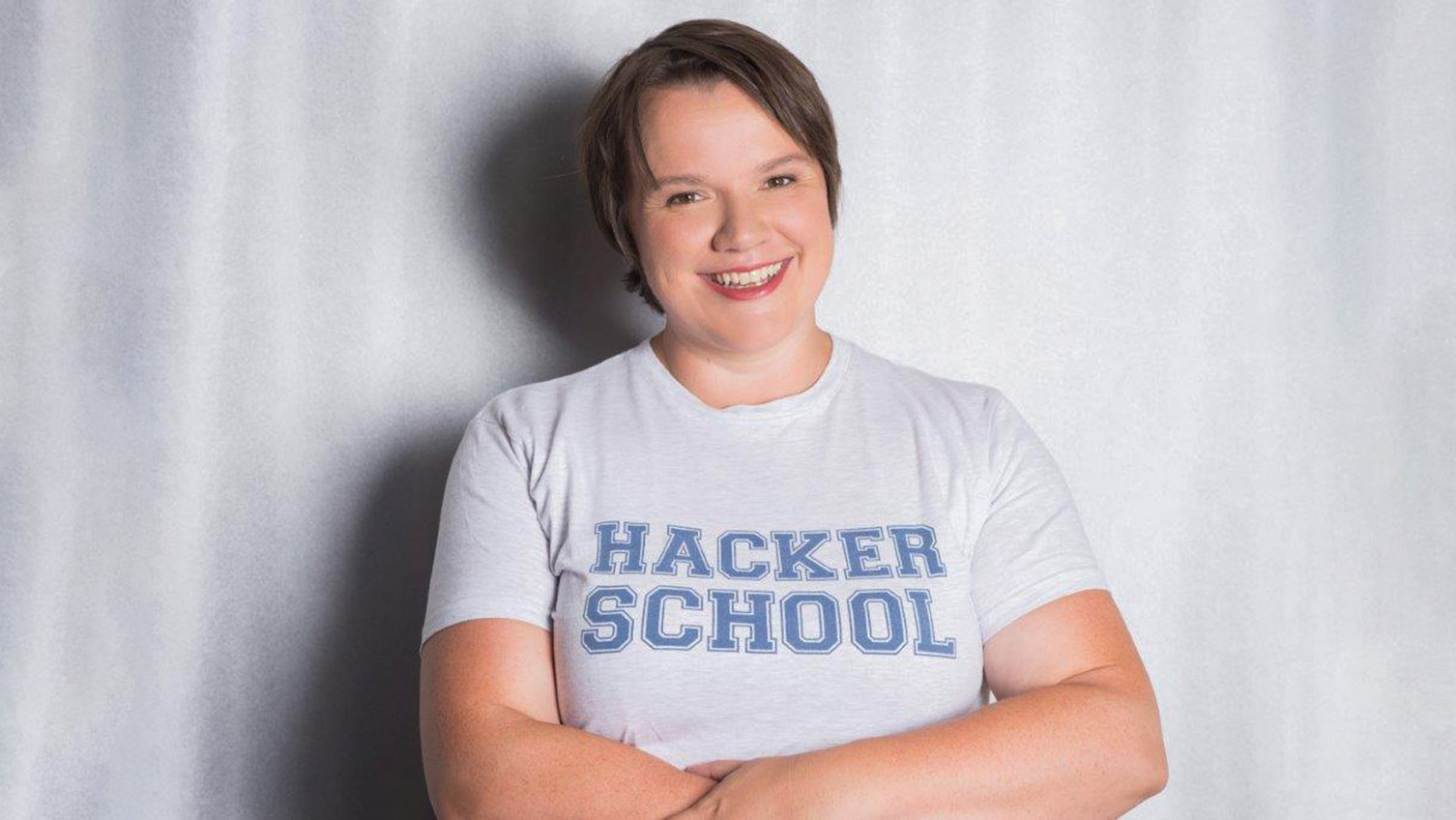Alumni Portrait: Dr. Julia Freudenberg
2020-10-15 "To face something completely new again and again, with new rules - that has always fascinated me." As managing director of Hacker School Hamburg, a project of the non-profit organisation i3 e.V., Dr. Julia Freudenberg makes an important contribution to the digital education of young people throughout Germany.
Dr. Julia Freudenberg earned her doctorate at the Faculty of Sustainability at Leuphana during her parental leave and later while working full-time. "I was in my mid-30s and I wanted to get to know something new. I felt like I had already seen a lot in the field of business and wanted to get to know new worlds. Continually facing something completely new, with new rules - that has always fascinated me. My doctorate went quite differently than I thought - it was even more lively and diverse than I had expected. I had no idea beforehand how valuable exchange at international conferences can be. I brought a large pool of practical knowledge with me, but I was able to learn an incredible amount in theory. An incredible enrichment resulting from my doctorate was that I was able to improve my abilities to access information and develop strategies in a structured, analytical and very goal-oriented way. This will stay for life." Her impression is that doctorates are also worthwhile for master's graduates who want to work in the field after completing their doctorate: "A doctorate simplifies a lot of things and opens doors. I notice that in my work as CEO, too. With a doctorate, you no longer have to discuss whether you have the required qualification in your field and beyond, that’s simply a prerequisite. It facilitates access to other CEOs as well as interaction with politicians, especially at the federal level. The fact that I have now also been appointed to the "Young Digital Economy" council by the Federal Minister of Economics and Technology, Peter Altmaier, shows in any case that my knowledge and work is widely accepted". She considers another advantage of her doctorate to be the close ties to Leuphana as an alumna. Thus, the Hacker School is involved as a cooperation partner in various activities and projects, e.g. at the Institute of Information Systems on the topic of data literacy. "These projects enable a diverse transfer of knowledge between Leuphana and our practical work and I can give back to Leuphana much of my current knowledge," says Dr. Julia Freudenberg.
The Hacker School, which she heads, is an educational institution that teaches programming skills to children and young people. She is in close contact with companies from the private sector, but also in cooperation with Leuphana researchers. Dr. Julia Freudenberg manages her school in an innovative way: "It is not so important to me which programming language our students try out. What drives me is teaching 20th century skills - creativity, communication, collaboration and critical thinking – through my enthusiasm for programming. We have to engage young people in what really and lastingly excites and interests them - then they dare to explore new worlds and also throw over the shadows of traditional stereotypes. If we offer a course on Minecraft, for example, we suddenly have forty kids on the waiting list, overnight. They come to us because they want to understand a new part of the world, what we call digital DNA - and that's quite similar to literacy. Reading and writing used to be a milestone. I believe that understanding what digitisation is, what programming is, is and must be just as great a milestone".
The kids taught in her school are the so-called digital natives. But Dr. Julia Freudenberg also works with digital immigrants. She keeps noticing how different the challenges these two groups face are. "The digital natives grow up with a false sense of security. It is a given that the current generation can operate any device and any programme. But the ability and also the interest to look behind the screen, to learn how things really work together, are often frightening. It's often the other way round with digital immigrants. Ultimately, however, the point is that everyone, no matter what age, should dare to learn about the digital world and programming. I see it as my job to show these kids how creative the professions involved are and how much easier they can make life. Every child should learn programming before deciding on a profession - especially for girls and young women, this can be a decisive step towards living equal rights".

